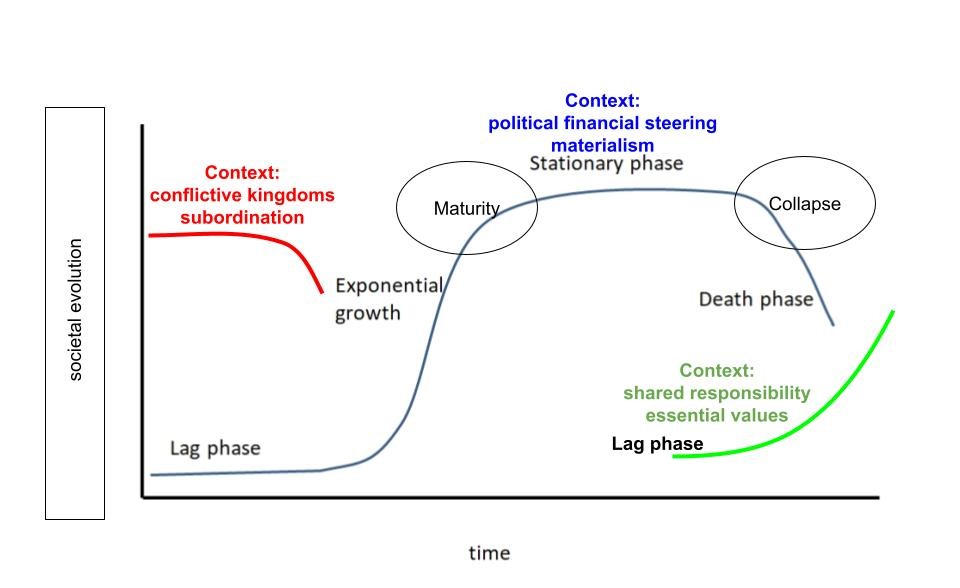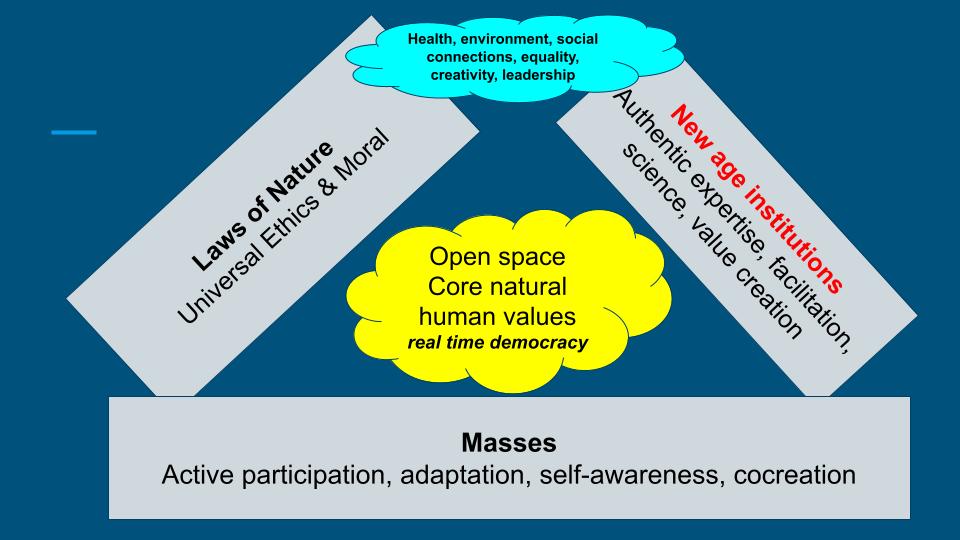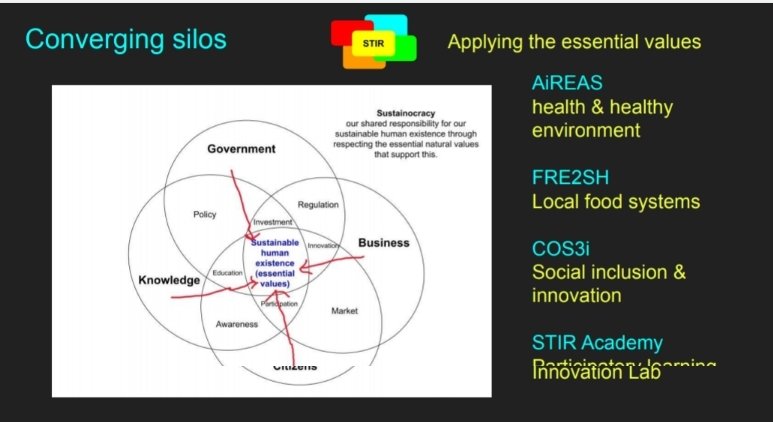The current era can be characterized by organized political financial materialism. A culture that affects all sectors of society, such as citizens, business, government, science and education. The era developed itself gradually in the 17th century when businesses started to dominate the playing field, demanding investments in education and infrastructures for their financial growth scenarios. Currently the growing costs of the care society and all remedial actions to address the negative degenerative spiral, are putting even larger performance pressure on the financial growth demand of society. The era is pushing itself towards the abyss of the unsustainable and collapse (see first image below).
Instead of fearing this abyss there is the comfort and joy of joining a new era. That is the era of shared responsibility between citizens and institutions to develop the essential values of our existence together. It is done in symbiotic co-creation with our natural environment. It represents a different citizen and institutional mindset (second image) in which there are plenty of success factors to be found for all involved. The images below show the emerging new reality in which all current societal players still play their own role, however committing in word and action to our essential human values.

The engagement enables the transformation of a traditional hierarchy of interests into an open field of co-creation. The institutions develop a specialist role, facilitating progress together with the citizens. With Sustainocracy as a working ideology, we are already firmly anchored in this contextual era. We acting as initiator through the positive invitation while positioning ourselves as space holder. Like this all the other players can be fully themselves at the table and define their level of engagement, impact and desired reciprocity (often to be much more than just financial returns or profit).

Another visualization on the convergence of societal silos into shared responsibilities.




